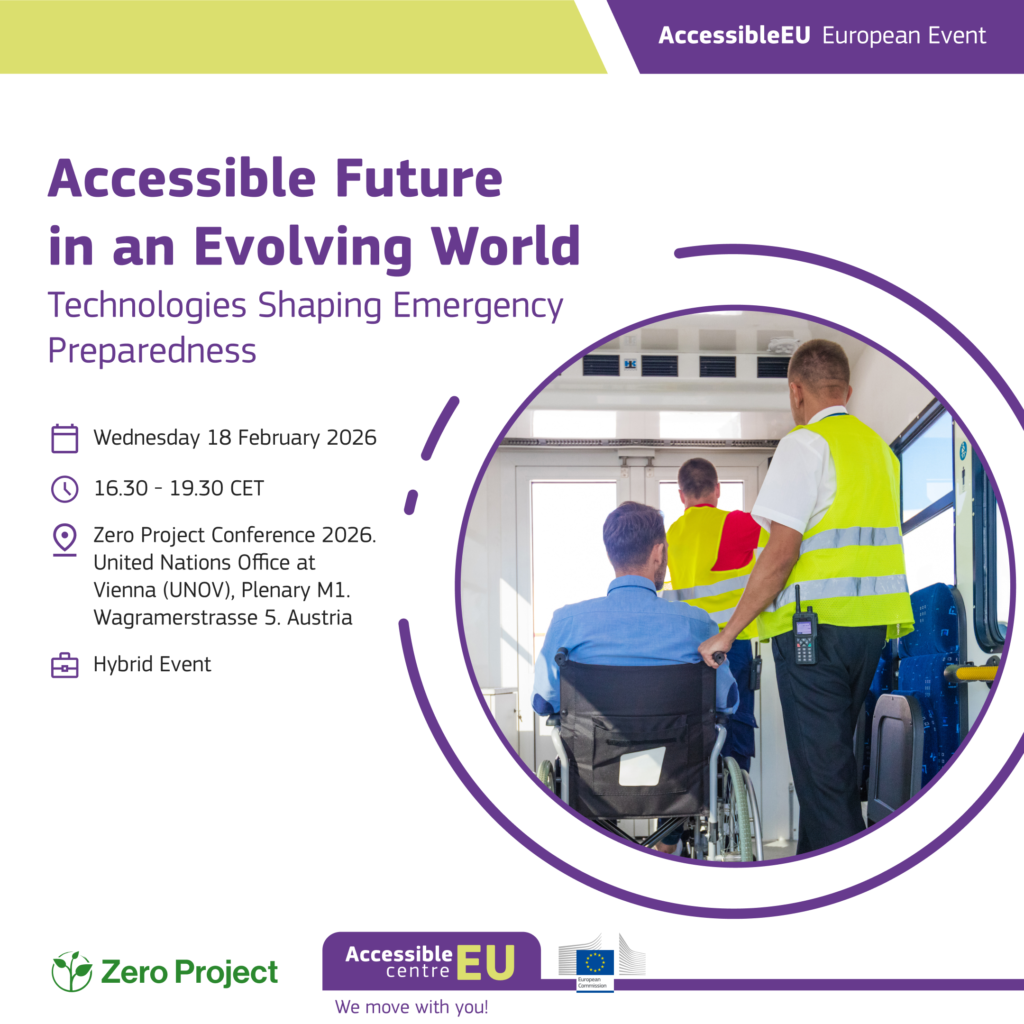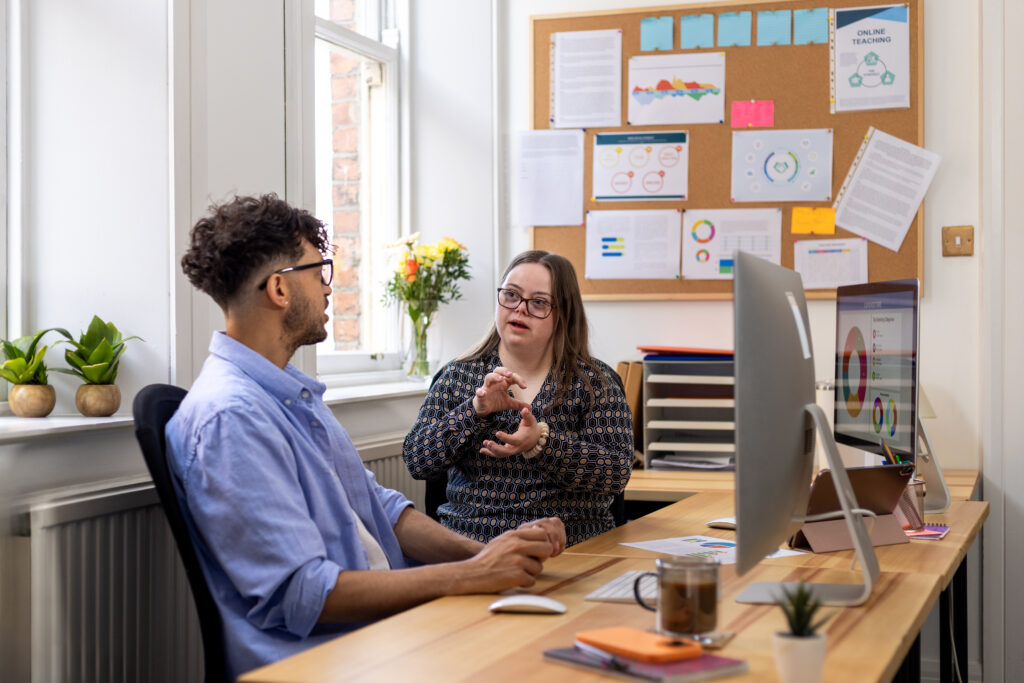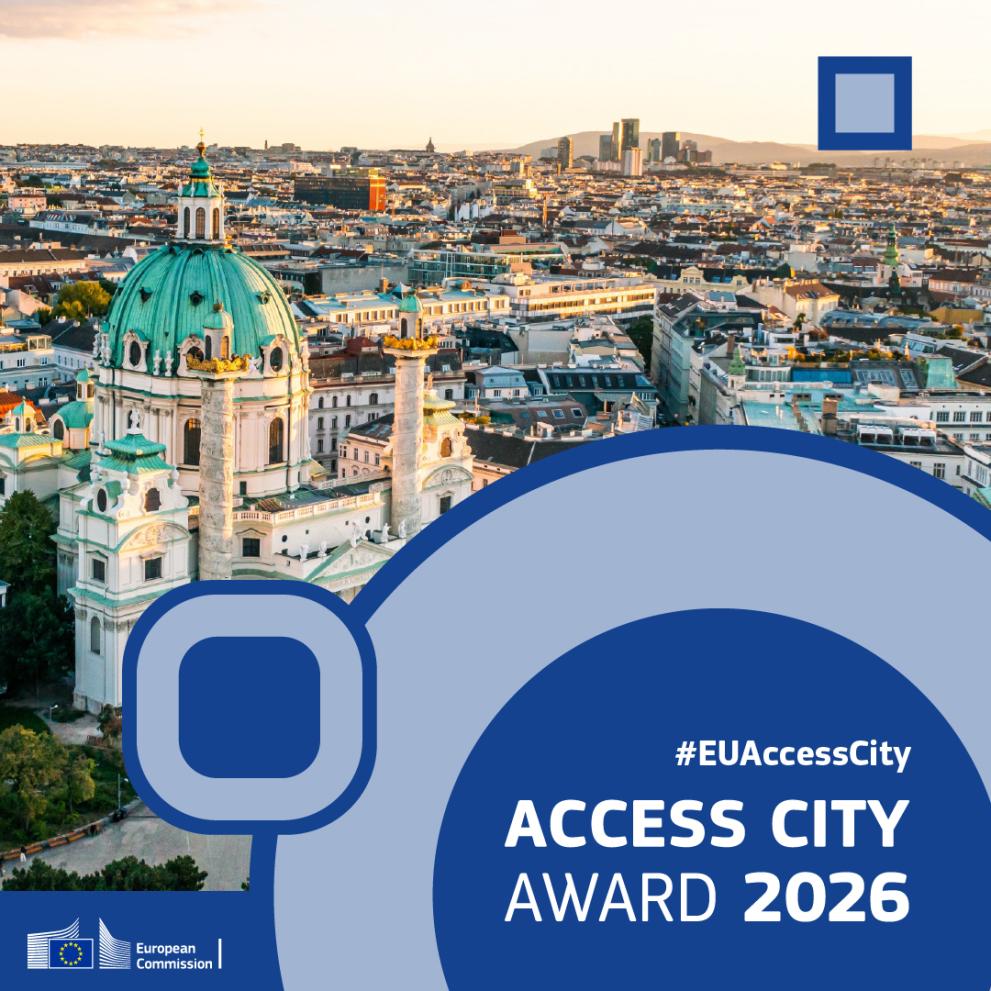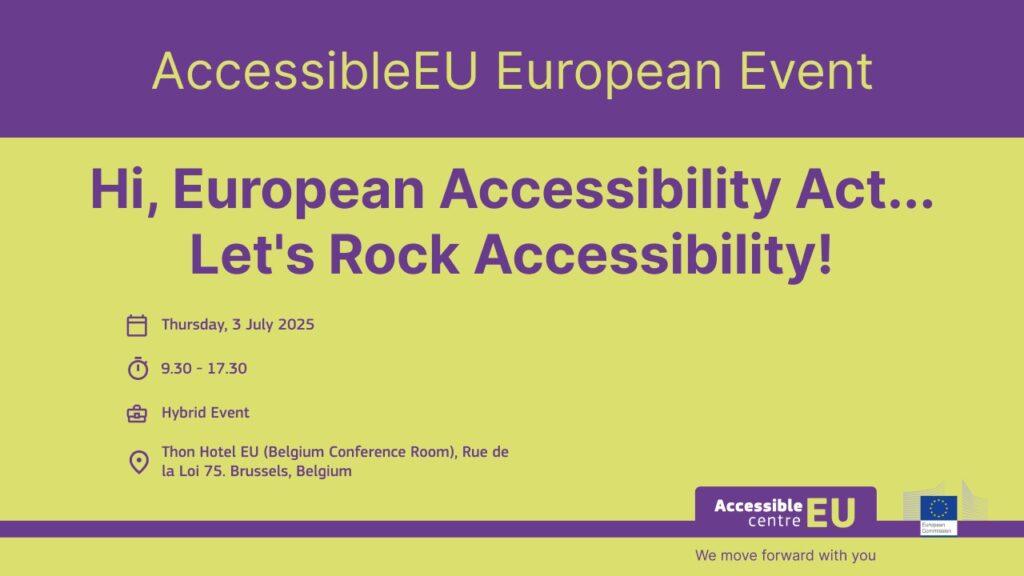
AccessibleEU has organised a workshop on emergency preparedness within the framework of the Zero Project Conference 2026, which will explore how accessible technologies can support inclusive emergency preparedness and response.
The event will bring together international leading experts, innovators, policymakers, and disability rights advocates. Its aim is to discuss how accessible digital solutions can enhance inclusive emergency responses in situations such as environmental disasters, armed conflicts, and migration crises, among others.
The session will also address the lived experiences of persons with disabilities in such scenarios and will encourage cross‑sector collaboration.
The workshop will take place on 18 February 2026, from 16:30 to 19:30 (CET), during the Zero Project Conference, held at the United Nations Office at Vienna (UNOV). English captioning and International Sign interpretation will be available.
The event is hybrid and free of charge. Access the agenda and registration form.
Fuente: AccessibleEU



